I dislike the term “film franchise.” I’m not against serialized filmmaking per se; some of my favorite movies are part of a series.12 But the word “franchise” calls to mind the sameness of fast-food chains.
While consistency is important (after all, that’s the value proposition for franchise restaurants), movie audiences also want novelty. The same, but different. The early MCU films created variety by mixing superhero narratives with a variety of genres—high fantasy, war propaganda, science fiction, etc—to varying degrees of success.
But the Mission: Impossible series took a different approach to freshening up their formula between installments.
Spy Hard (And Soft)
Just like there's a scale of hard to soft science fiction, I think there's a scale of hard to soft spy movies. On the hard (realistic) end, you've got something like Tinker, Tailor, Soldier, Spy and on the other there's, say, Kingsman: The Secret Service.3 And, of course, there are many in between. North by Northwest is a little more lighthearted, Three Days of the Condor more serious, and so on.
The Bond movies tend to run the gamut, with down-to-earth thrillers like Casino Royale and From Russia with Love to near-fantasies like Moonraker and Die Another Day. The Mission: Impossible series doesn't have quite that range, but the first five movies are quite distinct, due to being a more auteur-driven series. For a time.
Auteur Provocateur
Throughout the 80s and 90s, Tom Cruise seemed to have made a concerted effort to work with the best directors in the world:4 Coppola, Scorsese, Stone, Paul Thomas Anderson, Ridley Scott, Kubrick, Spielberg, etc etc etc.
So when he produced the original Mission: Impossible, it wasn't a surprise that he hired Brian De Palma to direct. Although it was an adaptation of a TV series, it really felt like a De Palma thriller, with its attendant bloody violence, voyeurism, and long takes.
As the series went on, Cruise continued to hire auteurs, and each of the subsequent four films bore the mark of its director. Mission: Impossible II wasn't so much a spy movie as a full-on action movie, with John Woo at his most bombastic.5
M:I III may have been JJ Abrams' first feature, but he had won Emmys for TV directing, and was the showrunner (its own type of auteurism) on two different series. The film's humor and romantic sentimentality reflected Abrams at his best.6
Mission: Impossible - Ghost Protocol was Brad Bird's first live-action feature, but he had won a couple of Oscars for directing two of the best animated movies of the 21st century. He played with the expectations of the franchise (the mask-making machine broke), but ultimately reconstructed the tropes of the series, as is Bird's MO.
The Big Stunt
Bird also introduced The Big Stunt to the series. Cruise had long been known as a “does his own stunts” kind of actor, and of course the previous films had all featured a version of the falling-down-but-not-quite-hitting-the-ground stunt.
But the climbing of Burj Khalifa was central to the marketing campaign, and probably the part people most remember about Ghost Protocol.
From that point on, Cruise found new and innovative ways to nearly kill himself on every Mission.
Mission: Impossible - Rogue Nation was the first film not directed by an established auteur. Christopher McQuarrie was an Oscar-winning writer, and he had directed a couple of movies, but he wasn't exactly known for having a unique directorial voice. In fact, he often cited Hitchcock as his inspiration for Rogue Nation, an influence that was particularly evident in the opera house sequence.
So for five films, every Mission was radically different in tone and style. De Palma's and McQuarrie's films were definitely on the harder end of the spy scale, while Woo's and Abrams' were less about spycraft than fun action. Sure, the characters were pretty thin (except in Bird's version), and the plots rarely mattered (except to De Palma), but that's not why audiences flocked to these movies. They came to see amazing set pieces executed in new and crazy ways.
A normal filmgoer wouldn't necessarily know that each film had different director, but they could feel it.
McQuarrie Era
The sixth film, Fallout, was unique in that it was the first Mission that wasn't unique.7 McQuarrie returned to write and direct the first true sequel in the series. Fallout dealt with the fallout repercussions of the previous film, and even brought back characters from earlier movies in a meaningful way. And in the end, not only was this movie resolved, but seemingly the entire series.
The series really seemed over.
And then along came Mission: Impossible: Dead Reckoning: Part One. Same writer/director. Mask fake outs. The Big Stunt. An elder statesman actor portraying the disapproving agency boss who mistakenly believes Ethan Hunt has gone rogue for the 6th time.8
Up until this point, the series had relied on auteur directors to deliver unique thrills each time. But 2023’s Mission was just McQuarrie's Mission again, again. And since Dead Reckoning was Part One, a course correction was going to be very difficult. McQuarrie admitted that the middling reception pushed them to change plans—
I quite like McQuarrie. I'm afraid Hollywood will see his successes as merely tied to his friend Tom Cruise, and not due to his clever writing and solid, classical directing skills. In the process of transforming Dead Reckoning: Part Two into Final Reckoning, he found a way to wrap up the series. Again.
Both the audience and critics’ scores seem to be down from 2023. The box office is up compared with the previous installment, but that may simply be due to not facing the Barbenheimer juggernaut.
To Dream a Mission: Impossible Dream
If I were in charge, I would let McQuarrie loose from his nearly two decade-long mission,9 and return the series to roots. Bring in a new writing/directing team, let them create something radically different than what’s been done before. Maybe even a smaller scale thriller, for a change of pace.
And while I’m making crazy suggestions, I’d like to point out the series’ tradition of stunt casting the head of the IMF/CIA, from Laurence Fishburne to Angela Bassett to Anthony Hopkins (who got to deliver the best line in the series).
For the next one (if there is a next one), I humbly suggest getting… Tom Cruise. He’s getting up there in years, as is his character. What would Ethan Hunt be like stuck behind a desk, while one of his agents “goes rogue”?
A character study of Ethan Hunt would, at the very least, be different, which is what the Mission: Impossible series used to be about.
Back in college, my roommate came in while I was watching Wes Craven’s New Nightmare. He asked what it was, and I said, “Nightmare on Elm Street 7.”
He replied, “Nothing ‘Part 7’ can possibly be good.” But [hot take warning] I contend it’s the best of the series.
Or if NOES isn’t classy enough for you, remember Silence of the Lambs was a sequel.
This is not a judgement of quality. Both styles and everything in between can be good or bad.
I feel like I've actually heard him so something to this effect in so many words, but I can't find the interview right now.
It's not even the first film with a physically formidable villain, although Henry Cavill was way more compelling than Dougray Scott.
M:I-2 is still the only one of the series where this didn't happen at some point.
He wrote on Ghost Protocol, though uncredited.

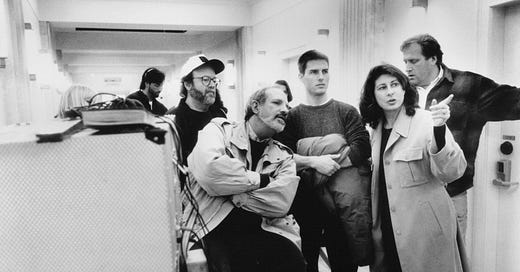


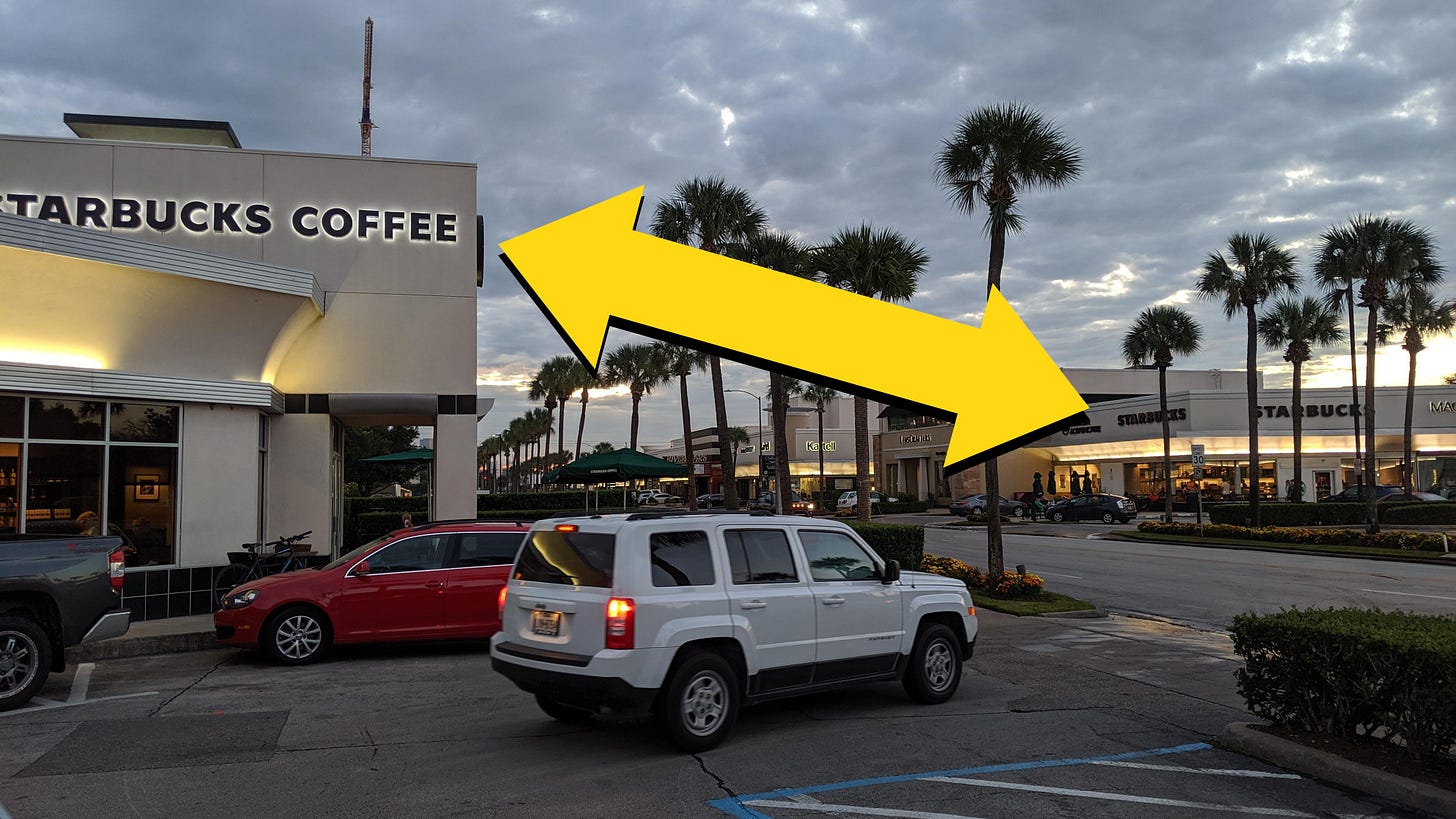

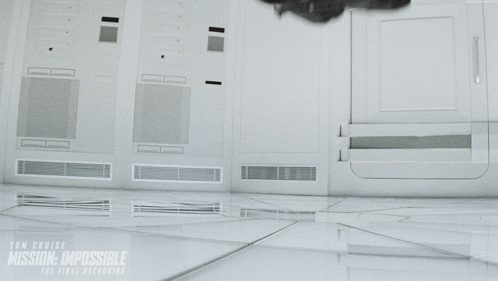


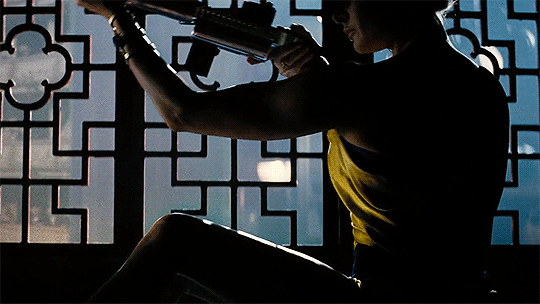
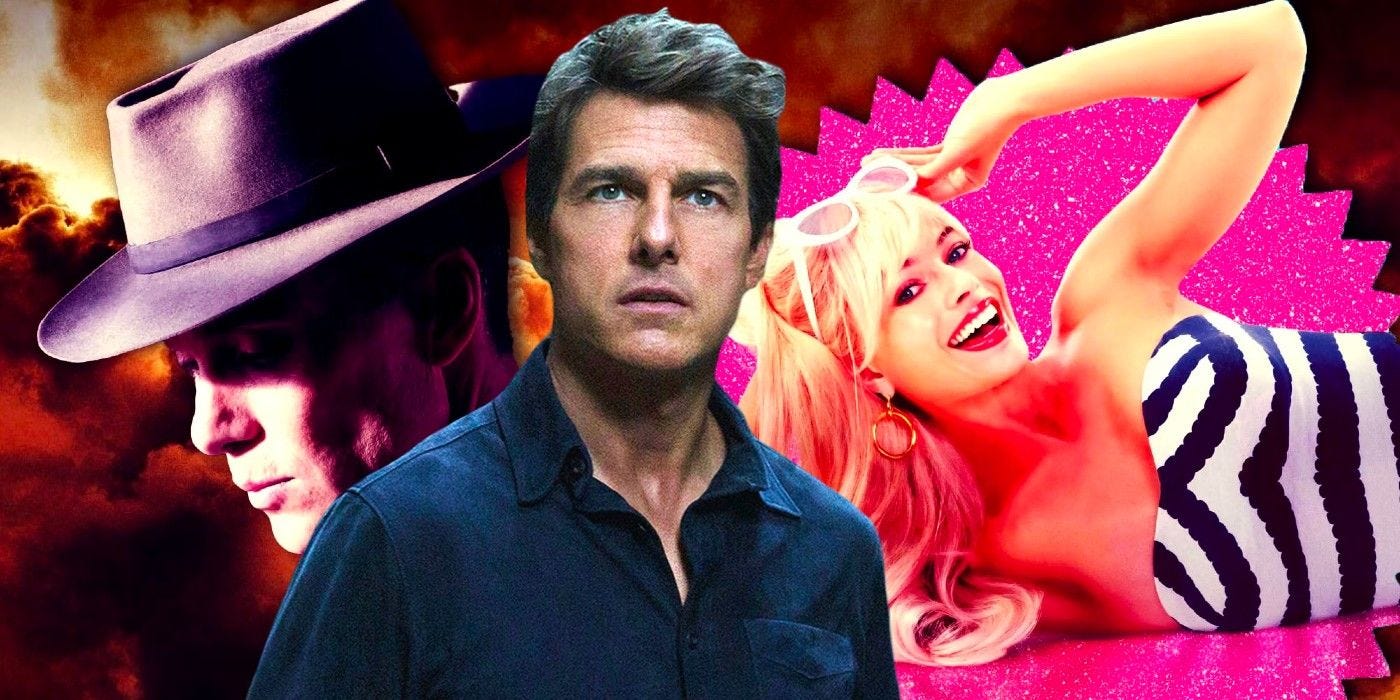
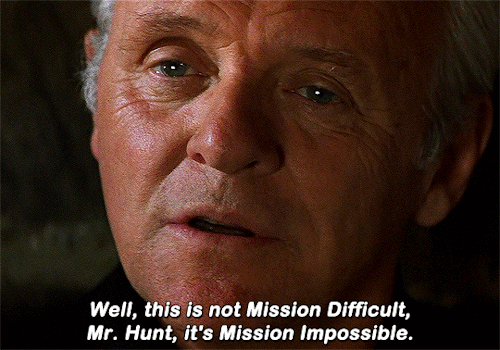
I had no idea that Cruise was producer on these movies! That’s very cool.
M:I-2 was like taking a stiletto to the back. I liked Face/Off a lot, and was looking forward to seeing what Woo could do with such a great FRANCHISE. Deal with it
But man it was like a dry fart. Just kind of dull. I stopped watching the FRANCHISE (…FRANCHISE) after that. But this article is making me want to dig back in. I never finished 3, but I’ve seen that Phillip Seymour Hoffman scene where he almost gets dumped out of the airplane a zillion times. This article has clinched it - marathon time. This is what I’m doing for the next couple of months.